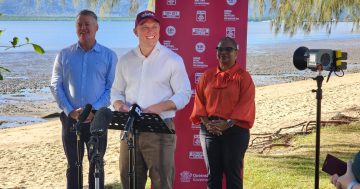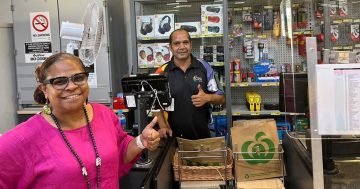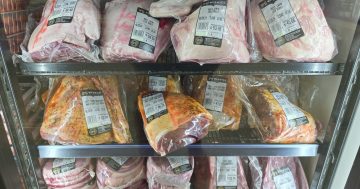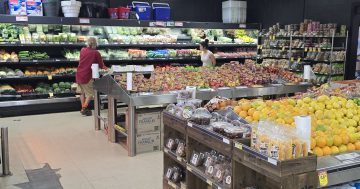
The much-anticipated freight subsidy will only include a 5.2 per cent discount on healthy groceries.
AFTER spruiking a major $64 million freight subsidy promise in March this year, the state government has revealed its hand.
Residents in remote communities in Cape York, the Torres Strait and the Gulf will receive just a 5.2 per cent discount at the cash register – and only on “essential goods”.
It doesn’t include a reduction in personal freight or a discount on fuel.
Minister for Transport and Main Roads Mark Bailey said the scheme would start early next year through a retail discount scheme, ensuring the benefit is felt by local residents.
The discount will be applied to eligible essential goods, including fruit and vegetables, fresh meat and dairy, frozen goods and groceries.
There will be some key exceptions including alcohol, tobacco, full sugar soft drinks, confectionary, hardware, clothing, fuel, furniture, white goods and other general household items.
The government has not said which communities will be included, although it appears that Weipa will not be included in the subsidy.
“By applying the benefit at the cash register, the weekly grocery shop will be more affordable for residents.
“Some items have been excluded, including fuel and clothing, as these are frequently purchased by tourists. Excluding them ensures the funding package delivers the most benefits to residents.
“TMR is working quickly to implement this new approach to provide freight funding assistance to these communities, working with relevant agencies, local government stakeholders and retailers as this scheme is established over the coming months.
“I encourage retailers to work with TMR and participate in the scheme to ensure all customers can enjoy lower prices and benefit from the five-year assistance package.”
EDITOR’S SAY – IS THIS A JOKE?
WHEN it was announced earlier this year that the Queensland government would be implementing a freight subsidy for the region, there was some genuine excitement about the prospect of seeing costs drop in remote communities.
This announcement simply does not cut it.
A 5.2 per cent discount on essential groceries will only save the average family around $10 per week.
Remote residents are already paying the highest prices in Queensland for meat and fruit and vegetables.
That doesn’t include the soaring cost of fuel and other personal freight.
How will this subsidy help small businesses?
In the media statement sent out, Member for Cook Cynthia Lui said: “This is fantastic news for my community and I thank everyone for their constructive and important input.”
Clearly, it’s been too long since Ms Lui was living in the Torres Strait, where a 5.2 per cent discount on groceries would have locals still paying “overs” compared to shoppers in Cairns.
If the Member for Cook thinks that a 5.2 per cent discount on essential groceries will make a difference to remote families, she should consider stepping down from her position.
Inflation in the last two years has pushed the cost of living well above 10 per cent in Cape York and the Torres Strait.
There might not be an endless bucket of money, but the Queensland government has shown its hand with this announcement.
This subsidy says it’s more interested in being recognised for “helping” remote communities than actually making a difference.
It’s just not good enough.

Mark Bailey and Cynthia Lui at the cost of living summit on the Torres Strait earlier this year.











